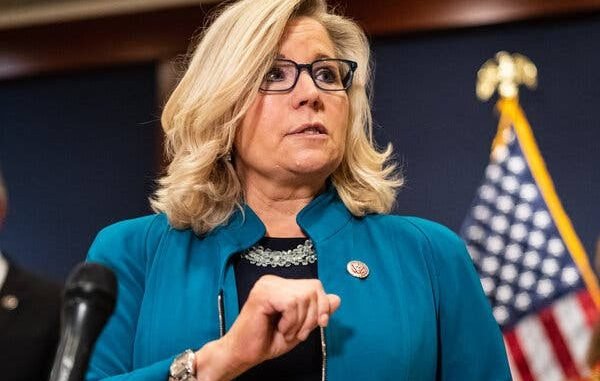In May 2025, a provocative open letter began circulating online, purportedly authored by former U.S. Congresswoman Liz Cheney. The letter urged the Democratic Party to “stop fundraising and start fighting,” calling for a more aggressive stance against the perceived threats posed by the Trump-aligned Republican faction. The message resonated with many across the political spectrum, leading to widespread sharing and discussion on various platforms.
However, fact-checking organizations, including PolitiFact, investigated the origins of the letter and determined that Liz Cheney was not its author. The letter was initially posted in a Facebook group named “Liz Cheney/Adam Kinzinger Against Trump” by a user named Dr. Pru Lee, who later identified herself as the true author. Despite the misattribution, the content of the letter struck a chord with many, highlighting a desire for more assertive political action.
The letter’s content called on Democrats to move beyond traditional fundraising efforts and adopt a more combative approach to counter what it described as the consolidation of fascist power. It suggested forming independent investigative coalitions, funding state-level resistance infrastructure, and creating digital safe havens for whistleblowers and defectors. These proposals aimed to galvanize the Democratic base and encourage proactive measures to safeguard democratic institutions.
The misattribution to Liz Cheney added a layer of complexity to the letter’s reception. Cheney, a Republican known for her vocal criticism of former President Donald Trump and her role in the January 6 Committee, has become a symbol of bipartisan resistance to authoritarianism. Her perceived endorsement of the letter’s message lent it additional credibility and urgency, even after the true authorship was revealed.
The incident underscores the power of social media in shaping political narratives and the importance of verifying information sources. While the letter’s message resonated with many, the initial misattribution highlights the potential for misinformation to spread rapidly online. It also reflects the public’s appetite for strong, decisive leadership in the face of political challenges.
In the broader context, the letter and its reception point to a growing frustration among some Democrats and independents with the party’s strategies. There is a perceived need for more assertive action to counteract the influence of Trump-aligned Republicans and to protect democratic norms. The letter’s suggestions, though unofficial, echo sentiments expressed by various political commentators and activists in May 2025.
The episode also highlights the evolving role of figures like Liz Cheney in American politics. Though a Republican, Cheney’s opposition to Trump has positioned her as an ally to some Democrats and independents seeking to uphold democratic principles. Her involvement, whether direct or perceived, in calls for political action reflects the shifting alliances and complexities of the current political landscape.
Ultimately, the letter serves as a catalyst for discussion about the direction of the Democratic Party and the strategies needed to address contemporary political challenges. It emphasizes the importance of proactive engagement, coalition-building, and the defense of democratic institutions. While the authorship confusion is notable, the core message continues to inspire debate and reflection among political observers and participants alike in May 2025.
As the political climate continues to evolve, incidents like this underscore the need for vigilance in information dissemination and the importance of cross-party collaboration in addressing threats to democratic governance. The letter, regardless of its origin, has sparked meaningful conversations about political strategy, leadership, and the responsibilities of elected officials and citizens in safeguarding democracy.
Many political analysts in May 2025 note that the urgency behind the letter mirrors real concerns about voter mobilization, election security, and civic engagement. Calls to shift from passive fundraising to active defense of democratic principles align with grassroots movements pushing for more visible and robust opposition to extremist politics.
Moreover, the online virality of the message has inspired renewed interest in how digital platforms can be used not just for campaign donations but also for organizing, information sharing, and coordinated action. The challenge, however, remains in separating verified content from misinformation—a task especially difficult in a time of political polarization.
- In conclusion, the misattributed letter calling for Democrats to “stop fundraising and start fighting” reflects a broader desire for decisive action in the political arena. It highlights the complexities of modern political alliances and the influential role of social media in shaping public discourse. As the nation continues to navigate the challenges of May 2025 and beyond, such calls to action—whether official or grassroots—will remain influential forces in shaping the future of American democracy.
